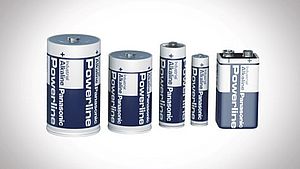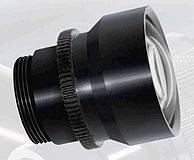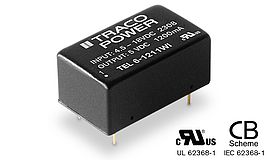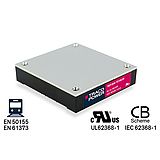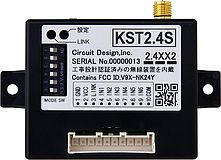Due to their high reliability, Panasonic batteries are often used in safety-related applications – but until the present time not in a solution that keeps the public safe from sharks. That all changed when the Australian government commissioned the Spanish company Marine Instruments to supply special solar buoys as part of a shark management strategy launched in 2015. Marine Instruments developed a GPS buoy for the detection and mitigation of sharks along the NSW coastline. Panasonic batteries in each buoy ensure that the solution is reliable and has a long life.
Solar buoys for real-time shark alerts
SMART drumlines consist of a bait and a solar-powered satellite buoy. If a shark takes the bait, the solar buoy is activated by the resulting pressure on the line, which immediately sends an alert with its exact GPS position to the responsible authority. This information is transmitted by e-mail, SMS and telephone call. Within just 15 minutes, the scientists or contractors travel to the buoy and fit the animal with two direction-finding tags in order to be able to follow it in the future. As soon as a new shark is marked, the information will be made available to the public via an app called "Shark Smart" and a Twitter feed. So if you want to get into the water, you can find out in real time about the presence and activities of the sharks in the area via the app or the Twitter feed. There are currently 100 SMART drumlines in use along the 1300 km coastline of New South Wales. Solar buoys play a crucial role in this, as they provide real-time warning when a shark is caught. The buoys are developed and manufactured by Marine Instruments, a young and innovative company based in Nigrán, Spain. The company specializes in high-quality tracking and remote monitoring products for harsh marine environments and sustainable fishing.
Reliable and safe thanks to Panasonic batteries
Marine Instruments then developed the Mli-S – an adaptation of the M3i, the company's best-selling buoy originally developed for tuna fishing. The Mli-S consists of a satellite transceiver with iridium communication, GPS, a magnetic on/off switch and a redundant power supply system. The latter is crucial for the reliability of the entire solution. Under normal conditions, the buoy is operated by solar cells and excess energy is stored in Nickel-Metal Hydride (NiMH) batteries. A buoy contains a total of 10 NiMH and 16 Alkaline batteries from Panasonic. While the Alkaline batteries have been supplied by Panasonic since the beginning of production, Marine Instruments initially used a competitor's NiMH batteries. Finally, the company switched to Panasonic because they were very satisfied with the performance of the NiMH batteries. Marine Instruments now uses Panasonic batteries across the entire range - from satellite buoys for tuna fishing to radio buoys for longline fishing.
The ideal battery for every application
Vendors and engineers from Panasonic assisted the developers of Marine Instruments in selecting the right battery types for the application. It was important to ensure that the batteries met the high demands for reliability and long-term use. Due to their high reliability, the Alkaline batteries are not only ideal for use in buoys, but also in safety-related applications such as smoke detectors or blood pressure monitors.





